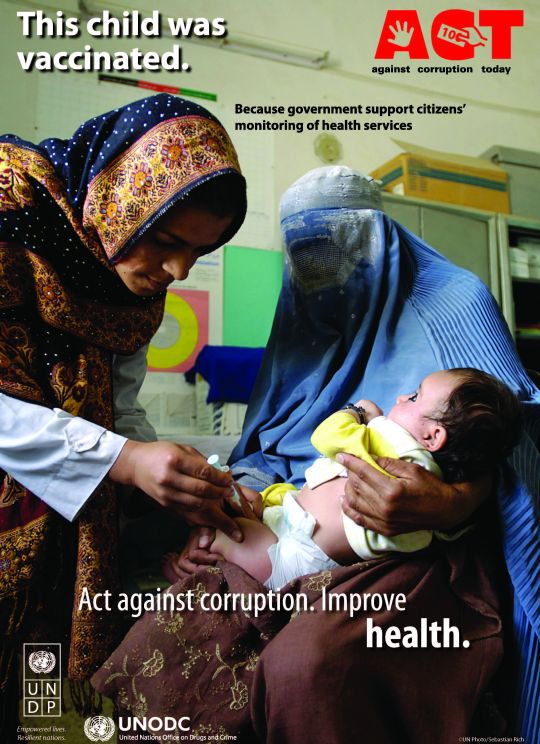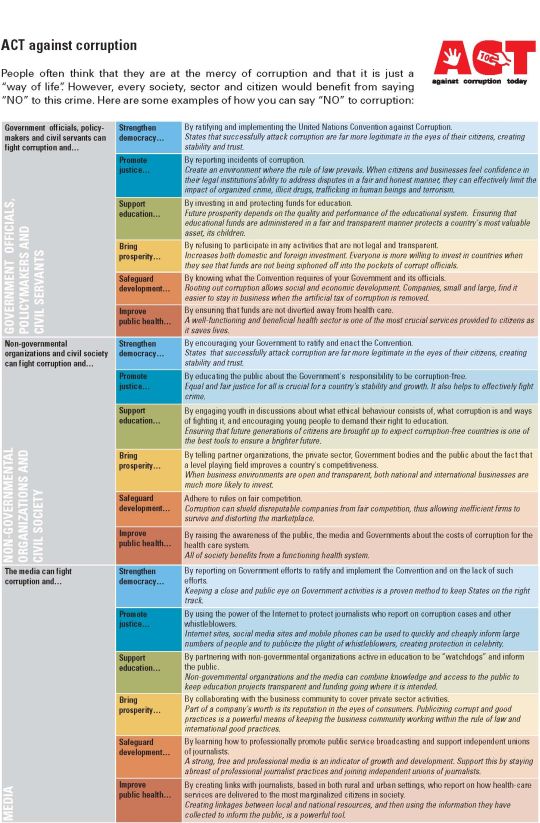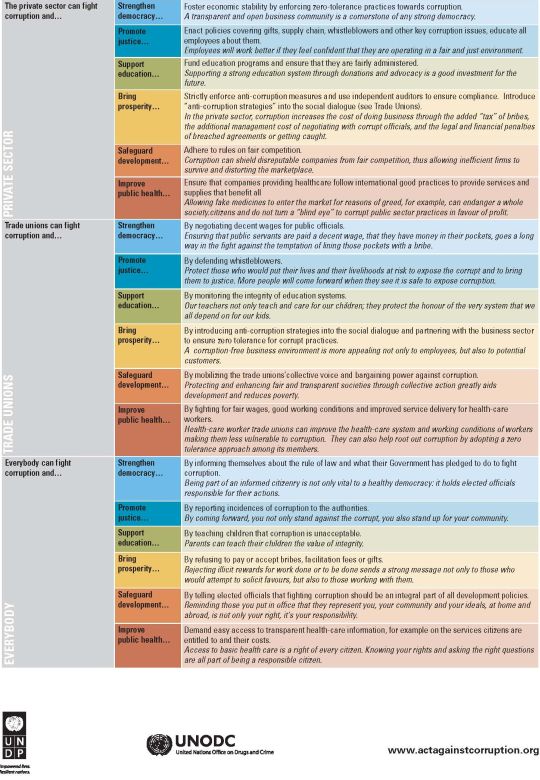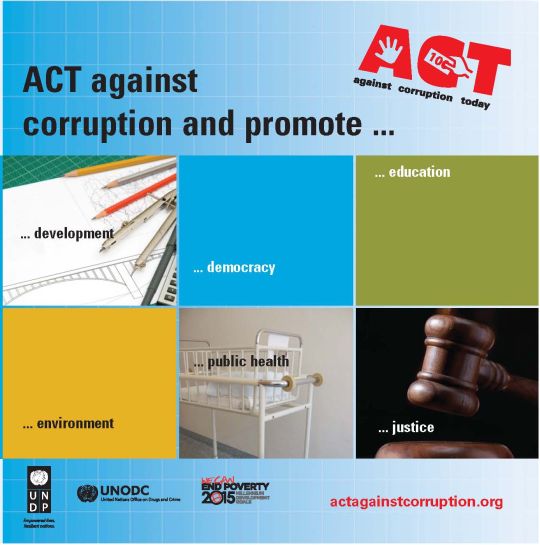Act against Corruption.
ACT against corruption
Act against Corruption.
Promote the MDGs.
Corruption is a serious crime that can undermine social and economic development in all societies.
No country, region or community is immune.
This year UNODC and UNDP have developed a joint global campaign, focusing on how corruption hinders efforts to achieve the internationally agreed upon Millennium Development Goals and impacts education, health, justice, democracy, prosperity and development.
About the Campaign
Fighting corruption is a global concern because corruption is found in both rich and poor countries, and evidence shows that it hurts poor people disproportionately. It contributes to instability, poverty and is a dominant factor driving fragile countries towards state failure.
Governments, the private sector, non-governmental organizations, the media and citizens around the world are joining forces to fight this crime. The United Nations Development Programme (UNDP) and the United Nations Office on Drugs and Crime (UNODC) are at the forefront of these efforts.
The 2011 joint international campaign focuses on how corruption hinders efforts to achieve the internationally agreed upon MDGs, undermines democracy and the rule of law, leads to human rights violations, distorts markets, erodes quality of life and allows organized crime, terrorism and other threats to human security to flourish.
We hope you’ll come together with UNDP and UNODC to ACT against corruption by:
- Organizing activities in your community to mark 9 December
- Publishing the campaign banner on your website
- Utilizing the campaign “Advocacy Guide” and “Call to Action Matrix”
- Using the “ACT against corruption” logo on publications & at events
- Adding your logo to the campaign poster or leaflet
- Creating a link to this website
- Sending a message to your networks about the campaign
- Like our Facebook page

What Can You Do?
ACT against corruption!
People often think that corruption is “just a way of life”, but every society, sector and individual would benefit from saying “NO” to this crime.
Here are some examples of how you can say “NO” to corruption. Follow this link for a complete Call to Action Matrix
- Ratify and enact the UN Convention against Corruption.
Countries that successfully attack corruption are far more legitimate in the eyes of their citizens, creating stability and trust. - Know what Convention requires of your government and its officials.
Rooting out corruption allows social and economic development. - Educate the public about the government’s responsibility to be corruption-free.
Equal and fair justice for all is a crucial element for a country’s stability and growth. It also helps to effectively fight crime. - Raise awareness with the public, media and government about the costs of corruption for key services such as health and education.
All of society benefits from functioning basic services. - Engage the youth of your country about what ethical behavior is, what corruption is and how to fight it, and to demand their right to education.
Ensuring that future generations of citizens are brought up to expect corruption-free countries is one of the best tools to ensure a brighter future. - Report incidents of corruption.
Create an environment where the rule of law prevails. - Refuse to participate in any activities that are not legal and transparent.
Increases both domestic and foreign investment. Everyone is more willing to invest in countries when they see that funds are not being siphoned off into the pockets of corrupt officials. - Foster economic stability by enforcing zero-tolerance practices towards corruption.
A transparent and open business community is a cornerstone of any strong democracy.
Call to Action


###
> United Nations (UN).
 The United Nations was established on 24 October 1945 by 51 countries committed to preserving peace through international cooperation and collective security. Today, nearly every nation in the world belongs to the UN: membership totals 192 countries.
The United Nations was established on 24 October 1945 by 51 countries committed to preserving peace through international cooperation and collective security. Today, nearly every nation in the world belongs to the UN: membership totals 192 countries.
When States become Members of the United Nations, they agree to accept the obligations of the UN Charter, an international treaty that sets out basic principles of international relations. According to the Charter, the UN has four purposes:
- to maintain international peace and security;
- to develop friendly relations among nations;
- to cooperate in solving international problems and in promoting respect for human rights;
- and to be a centre for harmonizing the actions of nations.
###
* The above story is adapted from materials provided by United Nations (UN)
** More information at United Nations (UN)






















